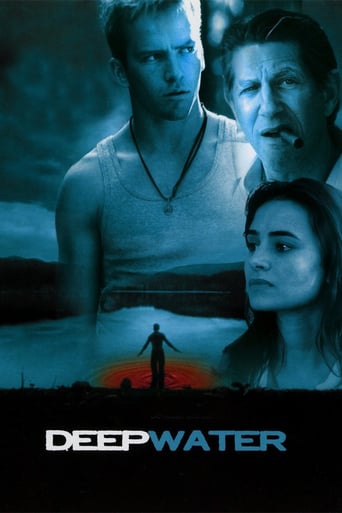

Anyone who appreciated original film noir will appreciate this offering, a film which applies Nat Banyan's perceptions through the camera, at times we do not realize what we are seeing and visualizing, until we really begin to analyze its meaning, and possible interpretations.Peter Coyote is excellent as the eccentric owner of the Deepwater Motel. Its environs remind one of Hitchcock's Bates Motel from "Psycho".Lucas Black is believable as Nat Banyan, a drifter and handyman who works on the motel for a time. There are many twists and turns, and excellent cameos by Michael Ironside as a used car salesman, and Lesley Ann Warren as a down and out waitress.Coyote was amazing in his characterization and earns the film ten stars. Highly recommended.
... View MoreI cannot quite get a handle on this film. It was interesting enough to keep me interested, but I am still not sure what I saw.Lucas Black (The Fast and the Furious: Tokyo Drift, Sling Blade) is ostensibly released from a mental institution - or was he? He meets Peter Coyote, who is a really strange guy with his hand in everything.He also has a hot wife in Mía Maestro (The Motorcycle Diaries, Frida) who has an affair with Black - or does she? People start dropping dead and it is difficult to figure out just who is doing the killing. Is it Black or is it Coyote or is it imagined? I just wish I knew what I have just seen.
... View MoreWhere was I when this movie came out? I don't' remember it EVER coming out. But I was at the DVD rental store and saw this movie, and since all I wanted was to lie down and vegetate, I rented it because the cast was interesting and I thought I'd give it a try. It seemed like a big mistake at first. The first 45 minutes had me reaching for a magazine to read at the same time, because I was sure I knew what was going on, and some of the characters seemed, well, stupid. And I hate stupid characters... but after seeing it in it's entirely, it has really stuck with me. Rent it, hang in there, and you'll be in for a treat.
... View MoreI saw the world premier of Deepwater at the Seattle International Film Festival. It's the director's first film, shot on a limited budget, and an excellent film.In the first scene, Nat, the main character, gets out of a hospital and tells the nurse he wants to go to Wyoming to take up ostrich farming. On his way, he stops at a car accident and picks up Herman Finch (Peter Coyote), and ends up going to a small town called Deepwater.Finch is involved with the local casino, apparently run by the mob. He offers Nat a job restoring his dilapidated motel, where the maid is his beautiful, and much younger, wife Iris (Mia Maestro, who attended the premiere).As Nat begins to work on the restoration, he starts getting to know the characters of this Twin Peaks-ish small town. Michael Ironside, who is creepy on a good day, is great in a supporting role as a local used-car dealer and Finch's poker buddy.That lays out the basic elements of the film noir, I don't want to say much about the plot for fear of spoiling the film for a viewer.The film is well edited and visually very nice. Other than the lack of marquee names, it does not appear to be a low budget film. Directing and acting are excellent, the movie is well-paced, and I would recommend it to anyone.
... View More